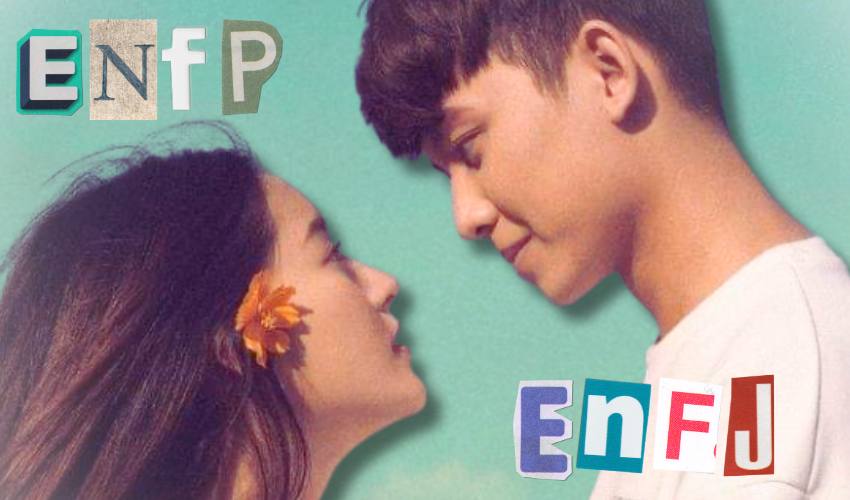When it comes to relationships, INFJs do not mess around. They don’t give their hearts away easily and so when they do choose to invest themselves in a relationship, it is with serious intent. They are out to find a soulmate or at least someone who fits nicely into their long term future. Although they are a feeling type, INFJs are for the most part, not emotionally needy. They are comfortable being on their own and oftentimes choose to deal with their feelings privately rather than seek the counsel of others. People with this MBTI type are more interested in tending to the emotional needs of other people, especially their romantic partners. They can be very selfless and conscientious, sometimes at their own expense. Although they value and put a lot of effort into their relationships, there are a number of relationship issues that people of this type may struggle with. Here is a look at 6 relationship problems that INFJs commonly face.
1. Unrealistic Expectations
INFJs can often set themselves up for disappointment by setting their expectations too high. They can sometimes act as though they expect their partners to understand everything they want without it being explicitly said. When dating someone, it’s often the little things that can be a deal breaker. They may harbor unrealistic ideas about how their partner is supposed to respond or behave in relation to them. INFJ’s discontentment can become evident and inadvertently make their partners feel inadequate or not good enough. Additionally, INFJs are not always forthcoming about their disatisfaction and tend to indirectly try to “help” or “fix” their partner which can often result in neither party being happy.
2. Setting Boundaries
INFJs enjoy being the person in whom their loved ones confide and come to for emotional support and advice. They seek to make themselves available to others and would often feel hard pressed to say ‘no’ to anyone in need. Because of this, INFJs can find it difficult to set proper boundaries with people, romantic or otherwise. As a partner, they may be too willing to cater to the needs of their significant other at the denial of their own. They may do so even when it is clear that they are being treated like an emotional ATM. When they allow themselves to be overladen with the problems of others, it can poison their spirit. Over time, it can foster resentment and anger inside themselves. They allow it to go on because of the guilt they might feel otherwise from “letting someone down”. INFJs should avoid overextending themselves in the pursuit of pleasing others especially when they are giving way more than they are receiving.
3. Fear of Vulnerability
INFJs have a knack for inspiring others to share themselves without fear of being judged or criticized. Although INFJs are quite comfortable handling the emotional vulnerabilities of others, they themselves may be less willing to expose their own. INFJs would like to divulge their secrets and inner feelings, but they scarcely trust anyone enough to do that. They tend to be more guarded and private about their personal feelings. Even within their relationship, there may be a lot that they withhold. Romantic partners who notice this may feel affronted by the lack of intimate reciprocity as a sign of distrust. For partners who want a more equal exchange of openness, INFJs emotional barriers can create a rift in the relationship.
4. Taking Things Personally
For INFJs, nonverbal language can be more cogent than words. It can be hard for them not to take into account the tone, tenor and contextual implications surrounding what is said or done to them. When insecurity enters the picture, their imaginations can run wild and potentially construe all sorts of meanings and motives behind people’s words. They may perceive insults and offenses where none were intended or interpret someone’s thoughtless gesture as being a sign of something deeper. Furthermore, INFJs can sometimes let the otherwise harmless remarks and actions of others fester in their psyche. INFJs may have general difficulty taking criticism because it can feel tantamount to being devalued in another person’s eyes. They tend to avoid conflict but when it does occur, they can often internalize its effects for long after until it comes out in explosive anger.
5. Stubbornness
Although INFJs tend to avoid conflict and are often willing to compromise, they can get drawn into arguments and disputes nonetheless on account of their very firm convictions. Despite being an attentive listener, they may be inclined to dismiss or ignore differing opinions without fully hearing them out. They often put a lot of faith in their intuitive notions which may sometimes defy logic or reasoning that other people can fully understand. Even though their powers of intuition can often prove correct or close to the truth of the matter, they can be surprisingly uncompromising and tunnel-visioned about certain things. They may display a sometimes self righteous and almost arrogant belief in their own wisdom as though they know what is best for all of humanity.
6. Need for Space
INFJs have a need for space that can sometimes cause them to shut down and withdraw for no apparent reason. Moreover, partners can have a tough time getting them to open up about it. Trying too hard to make INFJ come out of their introverted shell may often drive them farther into it. INFJs can occasionally get overwhelmed by what they are feeling and need time to process emotions and sort themselves out privately. For INFJs, retreating from the world is a necessary coping mechanism for preserving their sanity and emotional wellbeing. During this period, INFJ’s characteristic warmth and kindness can turn cold and emotionally detached. How a partner responds to INFJ at this time, can serve as a test of the strength of the relationship. Partners who understand and respect INFJ’s need for space and solitude will likely earn greater trust from them.
related posts:
- INFP vs INFJ: 5 Features That Set Them Apart
- INFJ vs INTJ: Differences and Similarities
- INFJ Compatibility with the Rational Types
- INFJ Defined: What It Means to be the INFJ Personality Type
- INFJ in Love: 6 Things To Love About INFJ.
- INFJ strengths: 7 Best Traits of INFJ
- The Dark Side of the INFJ Personality
- 7 Major Weaknesses of the INFJ Personality
- 6 Excellent Career Matches For INFJs
- 6 Careers INFJs Should Probably Avoid
- 6 Reasons Why INFJ and ENTP Belong Together
- 5 Reasons Why INFJs fall for INTPs
- 6 Reasons Why INTJ and INFJ Fall In Love
- 6 Reasons Why INFP and INFJ Fall In Love
- ISFJ and ISTJ in love: 5 Essential Dynamics of their Relationship - February 24, 2024
- ENTP and ENTJ in love: 6 Critical Dynamics of Their Relationship. - February 18, 2024
- ESTJ and ESFJ in love: 4 Key Aspects of their Relationship. - February 12, 2024





